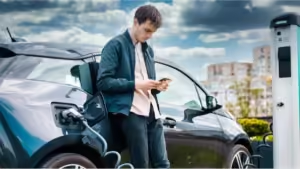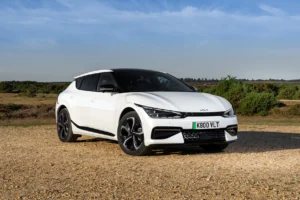As the automotive landscape continues to evolve, electric vehicles (EVs) are gaining unprecedented popularity. With their eco-friendly appeal and innovative technology, many consumers are making the switch from traditional gasoline-powered cars to electric models. However, one crucial aspect of owning an electric vehicle that often gets overlooked is insurance. Understanding electric car insurance costs in 2024 is essential for current and prospective EV owners. This article explores the various factors that influence insurance premiums for electric vehicles and provides insights into how they differ from traditional car insurance.

The Growing Popularity of Electric Vehicles
The demand for electric vehicles has surged in recent years, fueled by increasing environmental awareness, government incentives, and advancements in EV technology. In 2024, electric cars are not just a niche market; they have become mainstream. As more manufacturers release a wide range of electric models, from budget-friendly options to luxury vehicles, consumers are faced with new choices. This shift has implications for the insurance industry, as insurers must adapt their policies and pricing structures to accommodate the unique characteristics of electric cars.
Factors Influencing Electric Car Insurance Costs
When it comes to determining insurance premiums for electric vehicles, several factors come into play. One of the most significant is the cost of repairs and replacement parts. Electric cars are equipped with advanced technology, including sophisticated battery systems and electric drivetrains. While these components offer numerous advantages, they can also be more expensive to repair or replace than traditional vehicle parts. As a result, insurers may charge higher premiums for electric vehicles to account for these increased repair costs.
Vehicle Value and Depreciation
The value of the vehicle plays a crucial role in determining insurance costs. Generally, electric vehicles tend to have a higher purchase price than their gasoline counterparts. This higher initial cost can lead to increased premiums because insurers base their rates on the value of the car. Additionally, the rate of depreciation for electric vehicles can differ from traditional vehicles. While electric cars may hold their value well in the short term due to demand, factors such as battery lifespan and technological advancements can impact their long-term depreciation. Insurers consider these dynamics when calculating premiums.
Safety Ratings and Features
Safety is a paramount concern for insurance companies when assessing risk. Electric vehicles often come equipped with advanced safety features and technology designed to prevent accidents and protect passengers. These features, such as automatic emergency braking, lane departure warning systems, and collision avoidance technology, can contribute to lower accident rates. Insurers may offer discounts for vehicles with high safety ratings, which can help offset some of the higher costs associated with insuring electric cars.
Battery Coverage and Warranty
One unique aspect of electric vehicles is the battery, which is a vital component of the vehicle’s performance and overall functionality. In 2024, many manufacturers provide extensive warranties for electric vehicle batteries, often lasting eight years or more. This warranty coverage can influence insurance costs. Insurers may factor in the warranty’s length and the manufacturer’s reputation for battery reliability when determining premiums. A robust warranty can provide peace of mind for both the owner and the insurer, potentially leading to lower insurance costs.
Driving Habits and Usage
Insurance companies consider driving habits and usage patterns when calculating premiums. For electric vehicles, factors such as annual mileage, driving location, and usage type can significantly impact insurance costs. Electric vehicle owners who primarily use their cars for short commutes may find that their premiums are lower than those who frequently take long road trips. Additionally, urban drivers may face different risks than rural drivers, which can further influence insurance rates. Understanding how your driving habits align with your insurance policy can help you find the most cost-effective coverage.
Availability of Specialized Insurance
As the electric vehicle market matures, more insurance companies are offering specialized policies tailored specifically for EV owners. These policies may include coverage options that traditional car insurance does not, such as coverage for home charging stations or battery replacement. As competition in the insurance market increases, consumers may find better deals and more comprehensive coverage options specifically designed for electric vehicles. Researching different insurance providers and their offerings can help EV owners find the most suitable coverage for their needs.
Discounts and Incentives
To promote the adoption of electric vehicles, many insurance companies are providing discounts and incentives for EV owners. These may include reduced premiums for safe driving, discounts for enrolling in telematics programs that monitor driving behavior, or incentives for purchasing eco-friendly vehicles. Additionally, some insurers may partner with automakers to offer bundled discounts for consumers who purchase both a vehicle and insurance from the same provider. Taking advantage of these discounts can help mitigate the overall costs associated with insuring an electric vehicle.
Regional Differences in Insurance Rates
Insurance rates can vary significantly based on geographic location. In 2024, electric vehicle insurance costs may be influenced by regional factors such as local laws, accident rates, and repair shop availability. Urban areas with higher traffic volumes may experience higher insurance rates due to the increased likelihood of accidents. Conversely, rural areas may have lower rates due to fewer drivers on the road. Understanding the regional dynamics that affect insurance costs is essential for electric vehicle owners looking to save money on their premiums.
The Role of Technology in Insurance Pricing
Advancements in technology are transforming the insurance industry, particularly regarding how premiums are calculated. Many insurance companies are now using data analytics and telematics to assess risk and determine rates more accurately. For electric vehicle owners, this means that their driving behavior can be monitored through mobile apps or devices installed in their cars. By demonstrating safe driving habits, EV owners may qualify for lower premiums. This technology-driven approach is likely to become more prevalent in the coming years, impacting how electric car insurance costs are calculated.
Future Trends in Electric Car Insurance
As electric vehicles continue to gain traction in the automotive market, the insurance landscape is expected to evolve. In 2024 and beyond, we may see an increase in the availability of customized policies that cater specifically to the unique needs of electric vehicle owners. Insurers may also invest in research to better understand the risks associated with electric vehicles and adjust their pricing models accordingly. Additionally, as technology advances, the integration of autonomous driving features may further complicate insurance pricing, leading to new models and structures for coverage.
Conclusion
Understanding electric car insurance costs in 2024 requires a comprehensive examination of various factors, including vehicle value, safety features, driving habits, and regional differences. As electric vehicles become more mainstream, the insurance industry is adapting to meet the needs of consumers. By researching available options and taking advantage of discounts and specialized coverage, electric vehicle owners can navigate the complexities of insurance and find cost-effective solutions for their unique circumstances. As the market continues to evolve, staying informed about trends and changes in insurance policies will be crucial for electric car owners looking to protect their investment while enjoying the benefits of sustainable driving.



